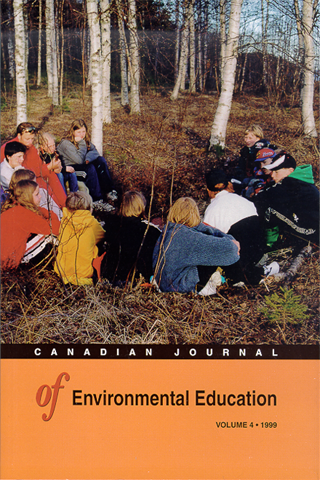Biodiversity as a Postmodern Theme for Environmental Education
Abstract
Environmental education in a postmodern world will have to be sensitive to the ill-defined nature of emerging key concepts such as biodiversity and sustainability. Despite all the confusion about such concepts, one thing is clear: there is no one single way of looking at them or defining them. In other words, there is no one single perspective or definition of biodiversity or sustainability that accurately describes them in all situations or contexts. Although this "ill-definedness" renders such concepts useless or reduces them to a rhetorical instrument from a modernist point of view, it makes them attractive from a postmodernist perspective. When acknowledging the need for respect for pluralism (respect for different ways of looking, valuing, understanding, etc.), the ever presence of elements of ambivalence and uncertainty in environmental decision-making and the need for learning situated in a rich context, environmental educators in a postmodern world will find merit in the ill-defined nature of these emerging concepts. Using biodiversity as an example the authors illustrate the educational appeal of ill-definedness. Biodiversity brings together different groups in society in search for a common language to discuss nature conservation issues in relation to sustainability issues. The mere fact that these groups, with diverging backgrounds, focus on a common concept-even though what the concept means to each group varies-allows for a socio-scientific dispute to emerge. This socio-scientific dispute provides an excellent opportunity for learning about a highly relevant, controversial, emotionally charged and debatable topic at the crossroads of science, technology and society. Special attention is given to the role of scientific knowledge in such disputes.Downloads
Published
1999-01-01
Issue
Section
Articles


